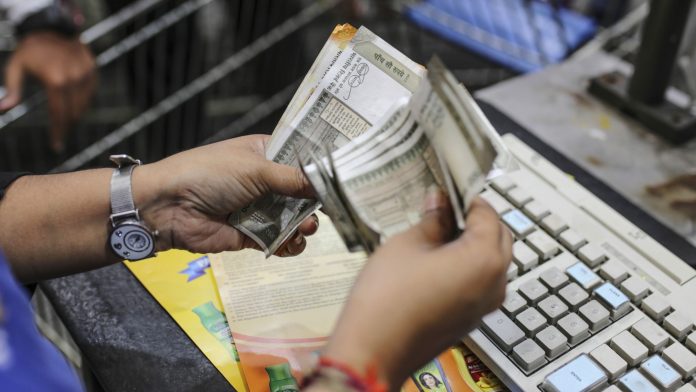
The coronavirus may remain infectious for weeks on banknotes, glass and other common surfaces, according to research by Australia’s top biosecurity laboratory that highlights risks from paper currency, touchscreen devices and grab handles and rails.
Scientists at the Australian Centre for Disease Preparedness showed SARS-CoV-2 is “extremely robust," surviving for 28 days on smooth surfaces such as glass found on mobile phone screens and plastic banknotes at room temperature, or 20 degrees Celsius (68 degrees Fahrenheit). That compares with 17 days survival for the flu virus.
Virus survival declined to less than a day at 40 degrees Celsius on some surfaces, according to the study, published Monday in Virology Journal. The findings add to evidence that the Covid-19-causing coronavirus survives for longer in cooler weather, making it potentially harder to control in winter than summer. The research also helps to more accurately predict and mitigate the pandemic’s spread, the researchers said.
“Our results show that SARS-CoV-2 can remain infectious on surfaces for long periods of time, reinforcing the need for good practices such as regular hand washing and cleaning surfaces," said Debbie Eagles, the center’s deputy director, in an emailed statement.

The coronavirus tended to survive longer on nonporous or smooth surfaces, compared with porous complex surfaces, such as cotton.
Notes Are Spreading through Corona Virus Which is Dangerous, Because Notes (Currencies) Are Filthy & Filled with A Whole Lot Of Germs & Bacteria’s Which can Make You Sick & ill. The Bacteria From Coronavirus Can Be Killed With UV Light And Currency Can Be Sanitized With PARAS UV Lights Product Range.
We would advise you to use PARAS Note (currency) counting machines & avoid virus contact. PARAS Machines sanitizes each note as it passes through UV - LIGHT SENSOR & removes the virus & bacteria from currency.
